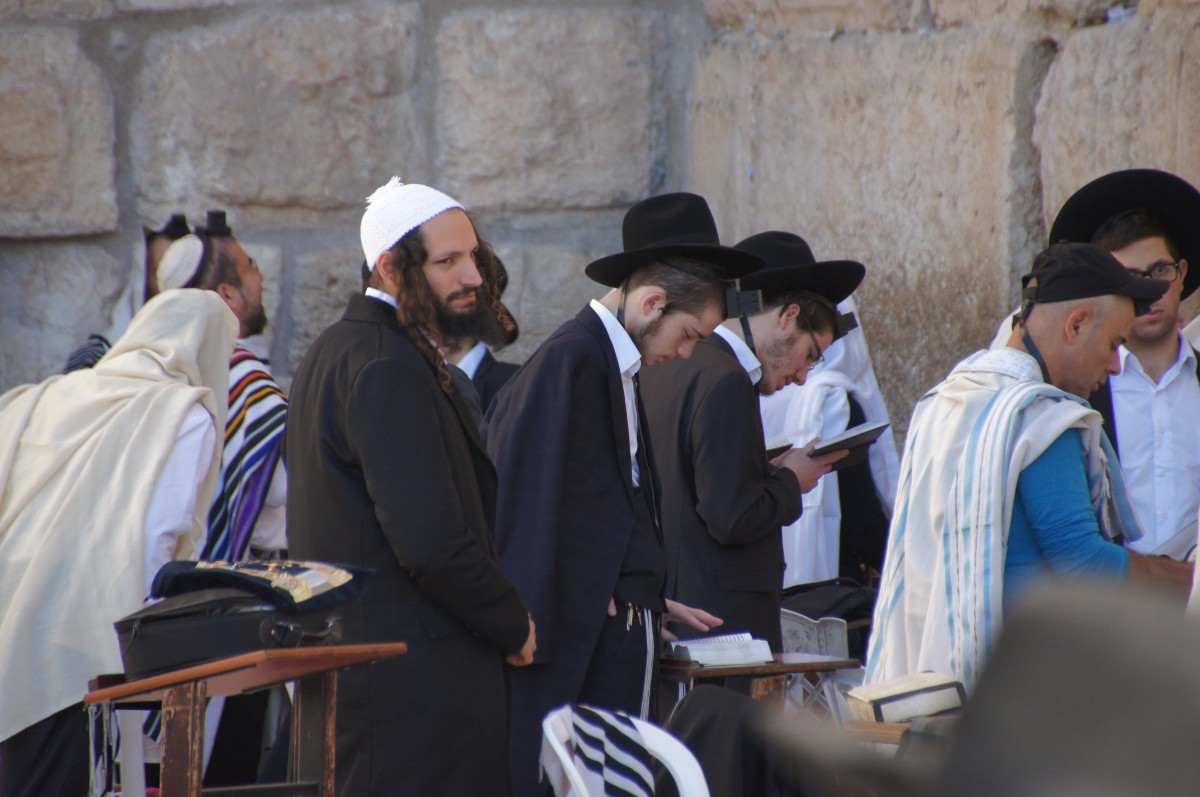The good news – according to a poll published in Ha’aretz on the Eve of Rosh Hashanah – is that 54% of all Israelis believe in God and another 21% believe that we’re governed by a Higher Power. The bad news is that, as a result, 37% don’t believe in evolution and another 19% say they aren’t sure.
The figures resemble those in the United States and are much higher than say in many European countries. And like in the United States, believers in God and deniers of evolution tend to harbor right-wing or reactionary political views. That’s why President Trump in his country and Prime Minister Netanyahu in ours are in power today, even though they themselves don’t seem to share the religious views of their supporters (or any religious views, for that matter).
Religion and nationalism are closely related. A little over half of all Jews in Israel, overwhelmingly on the religious and political right, believe that our being in the Land of Israel is based on God’s promise to the Jewish people. 56% affirm that Jews are the chosen people.
But unlike in America, in Israel the young seem to be more religious than their parents and grandparents. This may have something to do with the fact that ultra-Orthodox families have many children but it may also be due to a general disappointment with modernity and what it stands for.
Not all Jewish believers in God or in a Higher Power appear to be traditionally observant. Only 25% say that they observe Shabbat according to Jewish law and another 14% say that they observe it “in parts.” As 60% of all Israelis say that they don’t observe Shabbat, they’re likely to be in favor of having provision stores and other facilities open on the day of rest.
More Israelis appear to keep kosher than Shabbat. 45% say that they fully observe kashrut and another 17% that they observe it in part, which may mean that they don’t eat pork or shellfish.
Even many observant Jews are opposed to the stranglehold of the Orthodox Chief Rabbinate over the population of Israel. For example, 67% of Israeli are in favor of breaking the Rabbinate’s monopoly over weddings. 61% are in favor of gay marriage. (Of course, intermarriage isn’t an issue in Israel). There’re also attempts by Orthodox Jews to break the Rabbinate’s kashrut monopoly.
Observance isn’t necessarily reflected in synagogue attendance. Only 17% of all Israeli attend synagogue services at least once a week.
Not surprisingly, Jews in Jerusalem are more religious and more observant than in say Tel Aviv. That’s why many young people who don’t wish to be part of the intense religious atmosphere in this city move to Tel Aviv and the coastal region, i.e., the string of de facto suburbs to its north and south.
I don’t know what the Reform and Conservative movements will make of these statistics. They may very well, and rightly, suggest that a good number of those who describe themselves as religious and partly or wholly observant are members of non-Orthodox congregations or might one day join their ranks. I wouldn’t know what to make of these statistics. At times I’m not even sure how much I believe in opinion polls, but I thought that the above figures offer a kind of profile worth reflecting on.
And reporting this gives me an opportunity to wish you a Happy and Sweet New Year.
Republished from San Diego Jewish World


























